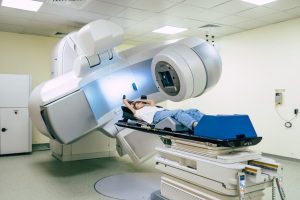
2026 Cancer Statistics
Cancer Death and Diagnosis Statistics for 2026: 2 RCCA Oncologists Provide Insights into the Numbers The latest statistics from the American Cancer Society (ACS) detail
HIPAA Alert: Potential Data Breach Learn More
Questions on Oncology, Hematology and/or Infusion Clinical Services due to COVID-19 Crisis – CALL 833-698-1623
Important Information for Our Patients Regarding the Coronavirus.
RCCA Providing Area Cancer Patients with Access to Care During Coronavirus Outbreak
RCCA Offering Patients Virtual Visits During Coronavirus Pandemic
The immune system is your body’s front line of defense against infection and other threats to your health, including cancer. This network of cells, tissues, and organs is effective in fighting and preventing most diseases. When it comes to combatting cancer, however, it can sometimes need some help. Immunotherapy is a cutting-edge treatment that empowers the patient’s own immune system to identify and destroy cancer cells. Regional Cancer Care Associates (RCCA), one of the nation’s largest networks of cancer specialists, employs immunotherapy, as well as targeted therapy and other cutting-edge approaches, in providing cancer care to individuals in New Jersey, Connecticut, Massachusetts, and the Washington, D.C., area. Here, we explore how it works and how it can help people with cancer.

The immune system works by detecting and destroying cells that do not belong in the body and that pose a threat to health. To do this effectively, it must first know the difference between cells that are normally found in the body and those that are not. Whenever an unfamiliar substance is identified, the immune system springs into action to attack the invader and protect the body.
Because cancer develops from mutations in previously healthy cells, cancer cells often look and behave very much like normal cells. This can make it difficult for the immune system to identify them as a threat. Rather than recognizing and attacking the abnormal cells, the immune response often bypasses cancer entirely.
Immunotherapy helps the immune system recognize tumor cells as abnormal. Once the immune system can identify the threat, it is able to respond with a counterattack. Many immunotherapies also strengthen this response, giving the immune system the boost it needs to fight cancer effectively.
Several types of immunotherapy are used in cancer treatment. Each boosts the immune system in a distinct way, with specific forms of immunotherapies employed for various types of cancer. Some common immunotherapy treatments include:
Immune checkpoints are special proteins found on the surface of cells. These proteins function as identifiers that tell the immune system whether the cells belong in the body. Some cancer cells also have these proteins. This makes them appear to be normal cells, preventing an immune response. Immune checkpoint inhibitors block the production of checkpoint proteins in a tumor. Without the identifying protein, cancer cells are no longer able to “masquerade” as healthy cells and be protected from an immune response.
T-cells are white blood cells that work to identify foreign substances. Each T-cell is equipped with a protein, called a receptor, which locks onto antigens (foreign substances) to signal the need for an immune response. To serve this function, however, T-cells must have the right receptors. T-cell therapy removes these white blood cells from the circulation and modifies the T-cells in a laboratory to equip them with the correct receptors. Once backer-introduced to the body through intravenous infusion, the modified T-cells can effectively lock onto cancer cells.
When the body identifies an antigen such as a bacteria, virus, or toxin, it produces antibodies. These are blood proteins that lock onto the antigen to destroy it. Monoclonal antibodies are created in a laboratory to recognize and destroy cancer cells in the same way they would spot and attack bacteria.
This treatment uses viruses that have been altered in a laboratory. The viruses are harmless to healthy body cells, infecting only the cancer cells. The immune system then recognizes the cancer cells as being infected. It attacks the cancer to destroy the virus, thus destroying the cancer, as well.
Vaccines expose the body to a small amount of antigen, or foreign substance. Through controlled exposure, the immune system learns how to target that antigen with the antibodies needed to destroy it. This method can strengthen the immune response against certain kinds of cancer, including prostate cancer, bladder cancer, and melanoma.
With multiple types of immunotherapy, this treatment approach is an option for many types of cancer. However, every cancer is unique. This means that its treatment must also be unique. Depending on the particular case and type of cancer, immunotherapy may not be the most effective approach.
When you receive care at RCCA, you and your cancer team will discuss the treatment options available to you. RCCA physicians and other team members will help you determine whether immunotherapy is appropriate for you and will answer any questions you may have about this and other treatments. Some cancers commonly treated with immunotherapy include:
Immunotherapy usually is delivered in an outpatient setting. Its method of administration depends on the type of cancer being treated and the type of immunotherapy being used. Different methods include:
The length of treatment is determined by factors including the type of cancer, its stage, and how your body reacts to the immunotherapy. In general, however, you can expect several weeks to months of treatment. Your RCCA medical oncologist will conduct tests throughout the treatment process to monitor your condition and make sure the immunotherapy is working as intended. Some patients may receive immunotherapy alongside or after other treatments, such as chemotherapy.
If you or a loved one has been diagnosed with cancer, contact RCCA today. Our team of cancer specialists will work with you to create an optimal, highly individualized treatment plan. We have more than 20 locations across New Jersey, Connecticut, Massachusetts, and the Washington, D.C., area, allowing you to receive treatment where you choose. Get started with immunotherapy for cancer now.
Currently, immunotherapy is approved to treat leukemia, lymphoma, kidney cancer, lung cancer, skin cancer, prostate cancer, and other solid tumors and cancers of the blood. Research is constantly expanding the applications of immunotherapy, making it a viable option for more types of cancer.
Most immunotherapy treatments are given as injections or oral pills or applied topically as a skin cream.
All medications, including immunotherapy, can cause side effects. The side effects seen with immunotherapy typically are different than those caused by chemotherapy, and generally are milder, as well. However, some patients receiving immunotherapy may experience side effects ranging from fatigue and minor flu-like symptoms to more serious infections. Your medical oncologist will monitor you closely to promptly identify and address and side effects.
For some types of cancer, immunotherapy may be the only treatment patients will need. For many others, immunotherapy may be combined with other treatments. RCCA also employs targeted therapy when possible.
For more information or to schedule an appointment,
call 844-346-7222. You can also schedule an appointment by calling the RCCA location nearest you.

Cancer Death and Diagnosis Statistics for 2026: 2 RCCA Oncologists Provide Insights into the Numbers The latest statistics from the American Cancer Society (ACS) detail

If you’ve been diagnosed with breast cancer, you may have heard radiation therapy discussed as part of your treatment plan. This approach is commonly used

Cancer and its treatment often impact a person’s quality of life. In the case of prostate cancer, a man’s sex life may be affected. Sexual

Regional Cancer Care Associates is one of fewer than 200 medical practices in the country selected to participate in the Oncology Care Model (OCM); a recent Medicare initiative aimed at improving care coordination and access to and quality of care for Medicare beneficiaries undergoing chemotherapy treatment.